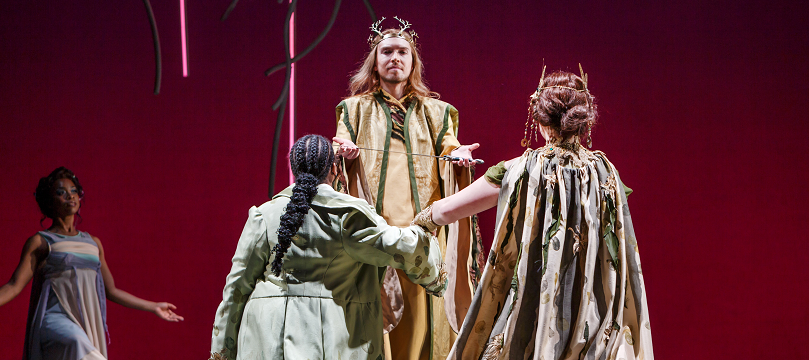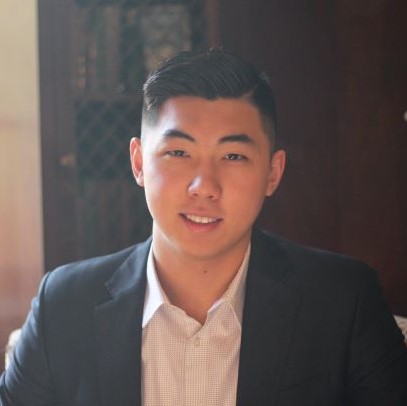Act I
The mutual love of the Princess Ginevra and Prince Ariodante has the full approval of her father, the King. As the opera begins, she confides her feelings to Dalinda when Polinesso, a Duke who covets the throne, enters her room. He makes advances towards Ginevra, which she forcefully rejects. Dalinda tells him that Ginevra’s heart is already betrothed, but confides that she herself is not indifferent to him. A plot thereupon forms itself in Polinesso’s mind to make use of Dalinda to be revenged on Ginevra.
In the royal gardens, Ariodante and Ginevra, exchanging vows, are given the blessing of the King, who intends to make Ariodante his successor.
Polinesso persuades Dalinda to dress up as Ginevra that night: he promises to respect her honour and make her his wife. Dalinda is overjoyed. Ariodante’s brother Lurcanio declares his love for Dalinda, but she rejects him. Lurcanio reflects on his love for Dalinda.
The act ends with Ginevra and Ariodante expressing their happiness and calling upon the nymphs to celebrate their joy in dance and song.
Act II
That night Ariodante, unable to sleep for excitement, walks in the royal gardens when he encounters Polinesso, who feigns surprise at the news of the forthcoming marriage - he claims to be enjoying Ginevra’s favours. When Ariodante becomes furious at these outrageous words, Polinesso promises to substantiate his charge: he tells him to hide and observe with his own eyes. Lurcanio conceals himself to watch the unfolding events. Dalinda, disguised as Ginevra, enters into an apartment with Polinesso. Ariodante is horrified at this apparent betrayal. Polinesso, swearing devotion to Dalinda, gloats over the success of his ruse.
The following morning the King learns that Ariodante has thrown himself into the sea and is believed to be drowned. He breaks the news to Ginevra, who collapses in shock. His own grief is heightened when Lurcanio accuses Ginevra of unchaste behaviour that drove Ariodante to his death. He demands justice: he will fight anyone who offers to champion Ginevra's cause. The King disdainfully declares that Ginevra is no longer his daughter. Ginevra is bewildered at the charge and mourns her fate.
Act III
Ariodante, alive, wanders in a field. Dalinda is amazed to see him alive, and he is equally astonished to learn from her of the trickery of which he was the victim. They set out for the palace.
The King refuses to see his daughter until a champion for her can be found. Polinesso, with an eye to succession to the throne, offers himself. Though Ginevra refuses his aid, her father insists on it.
Polinesso meets Lurcanio in public combat and is killed by a mighty blow. Lurcanio, still burning to avenge Ariodante's supposed death, challenges any further champions of Ginevra. A knight whose face is hidden by a closed visor appears. Lurcanio tells the stranger to prepare for combat, but the knight raises his visor and, to general astonishment, reveals himself as Ariodante. He offers to explain all if the King will pardon Dalinda for her unwitting part in the deception. The King at once hastens to his daughter with the happy news while Dalinda gladly accepts Lurcanio’s courtship.
Ginevra, in the apartment to which she has been confined, is giving way to despair when the King joyfully arrives to tell her she is vindicated. She reunites with Ariodante. The opera concludes with their wedding celebration.
(c) Lionel Salter, courtesy of Philips Classics Productions, edited by Crystal Manich




 Performance Dates/Times/Location
Performance Dates/Times/Location










